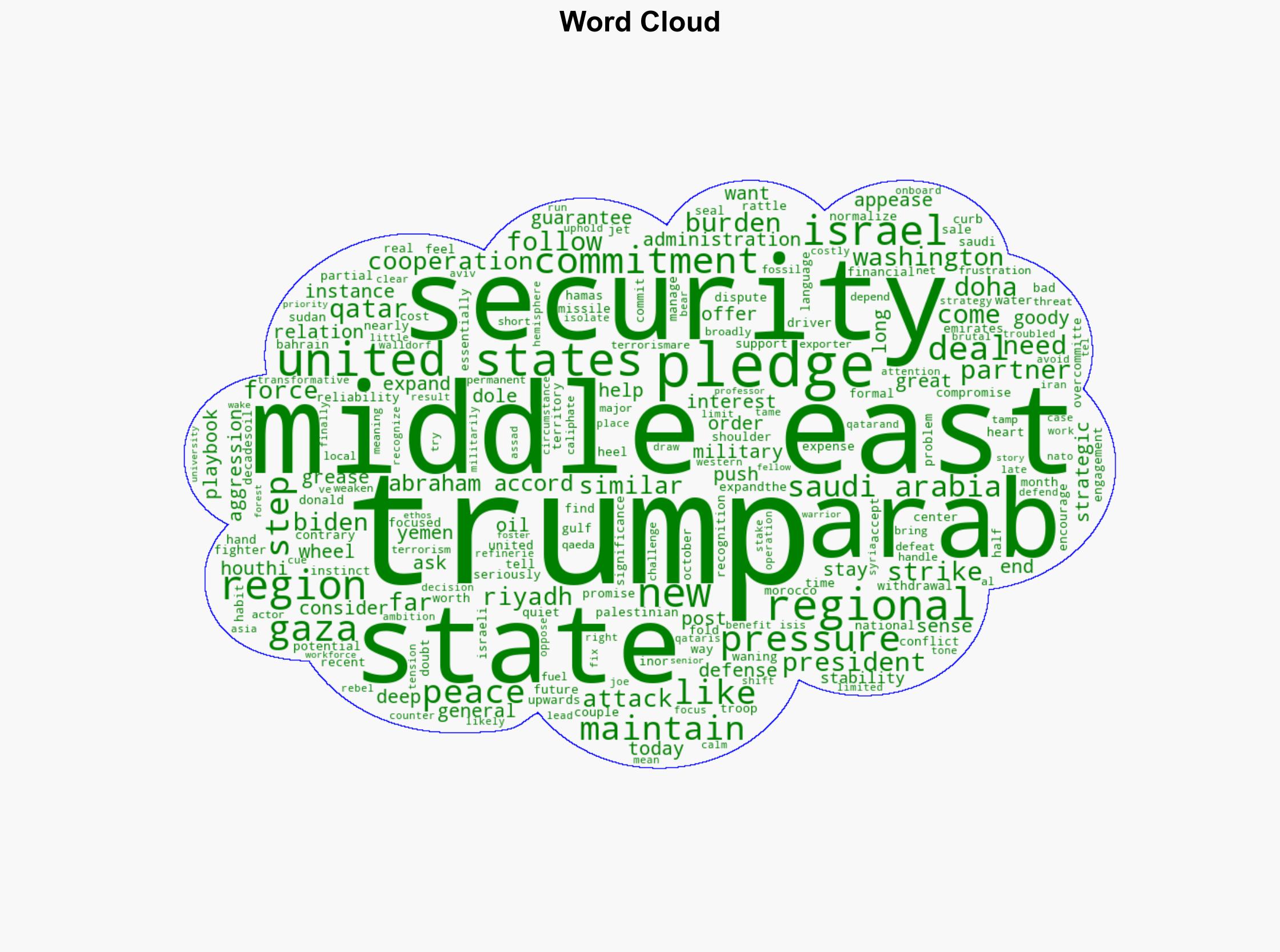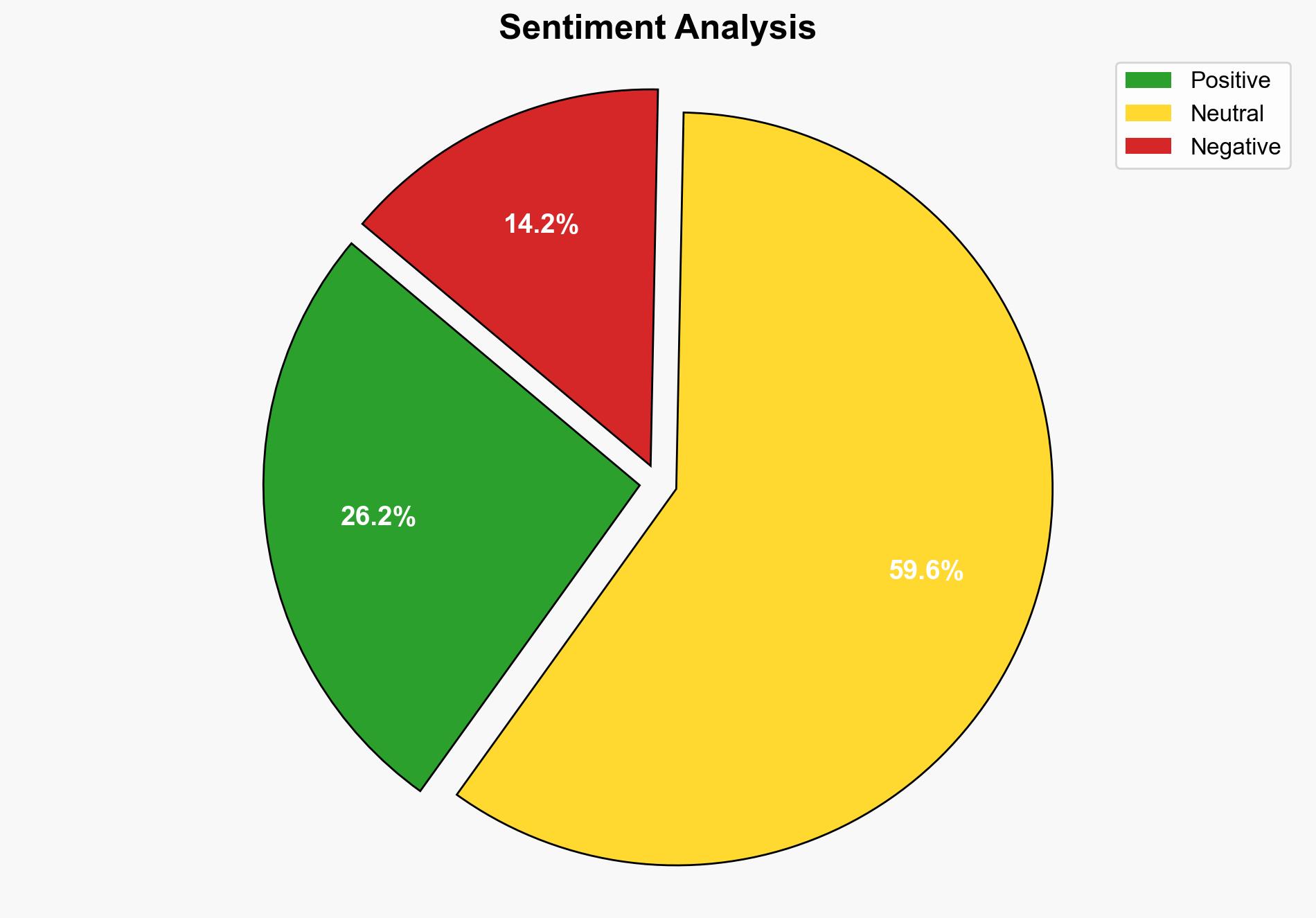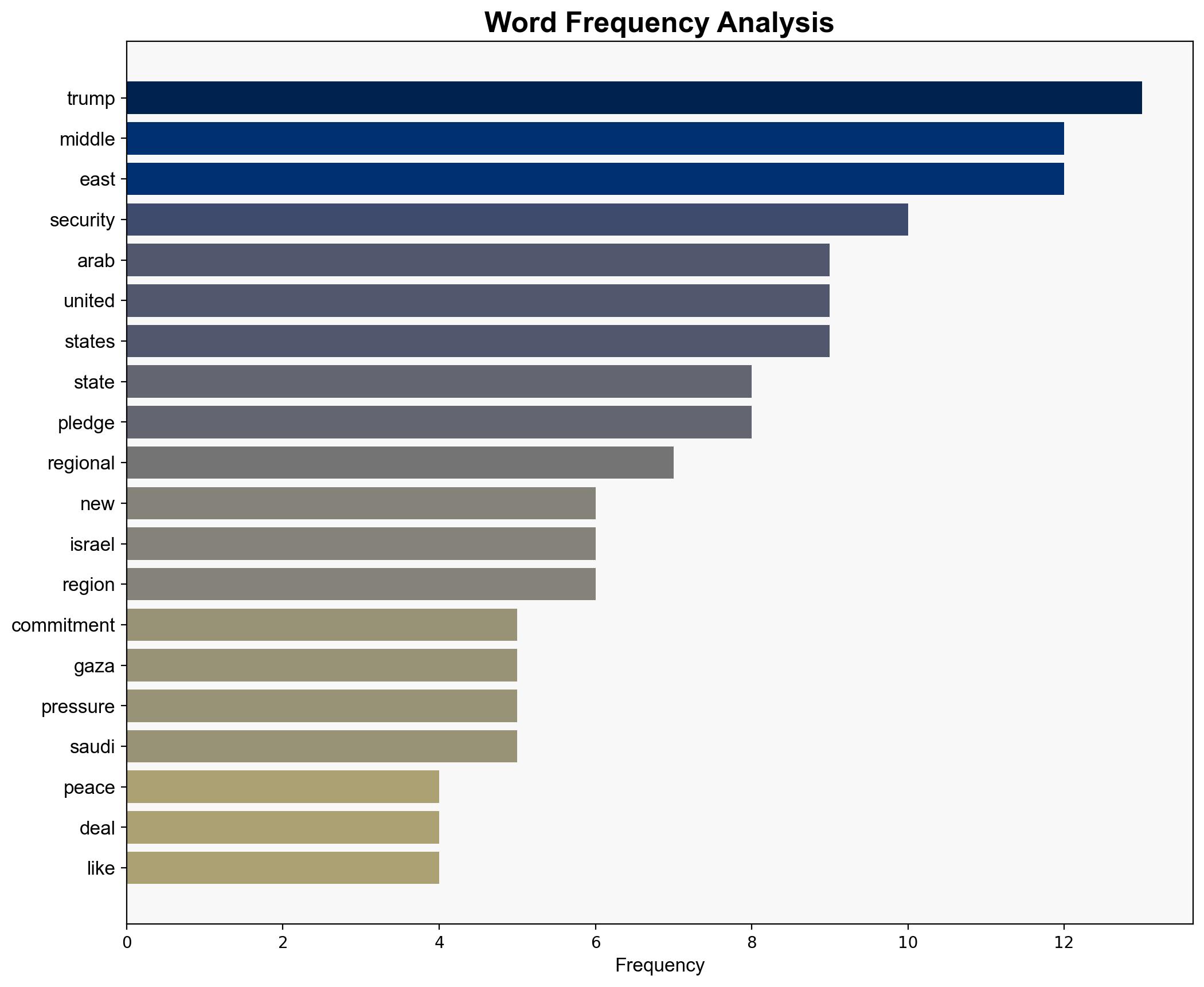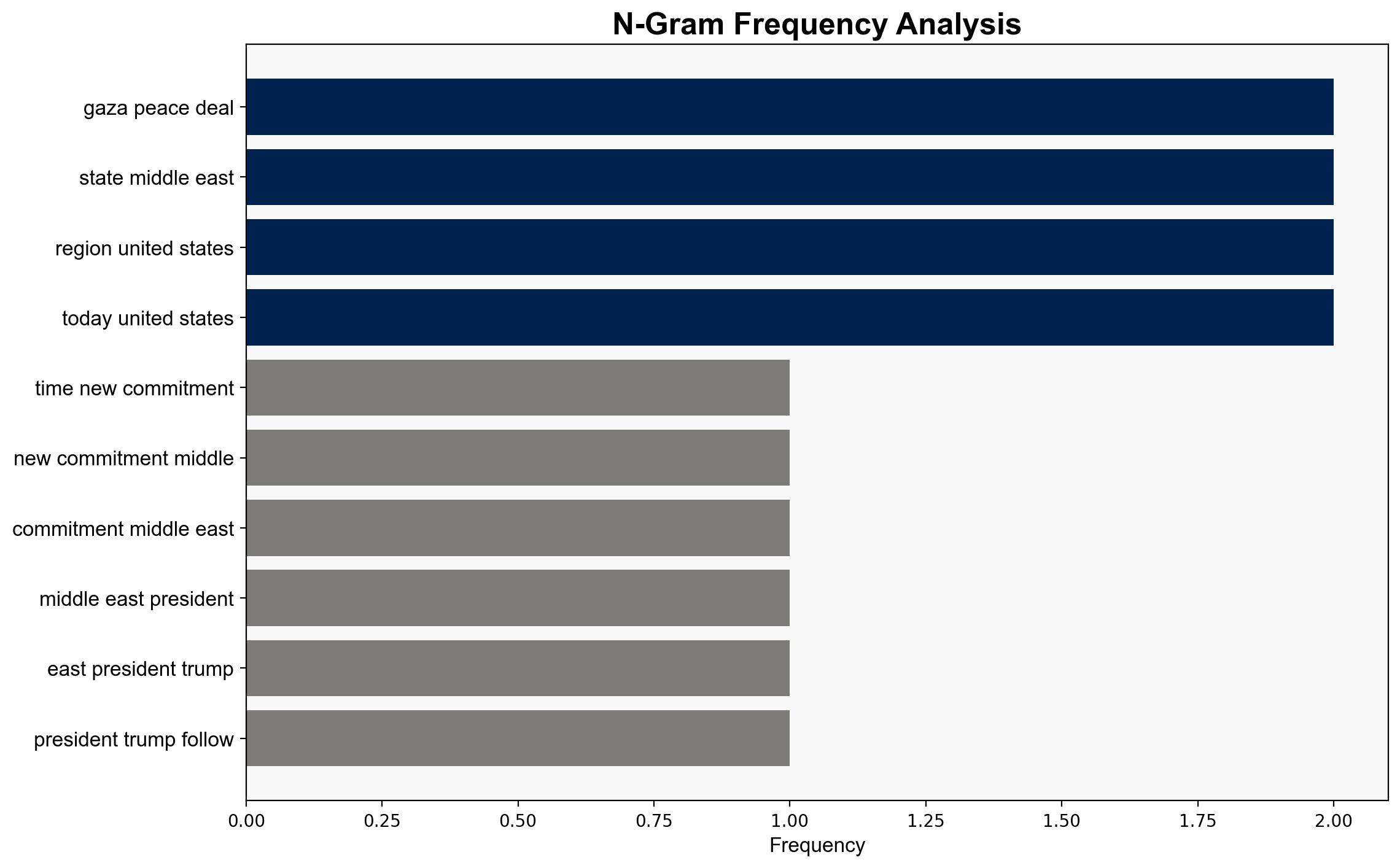Now is not the time for new US commitments to the Middle East – Defense One
Published on: 2025-10-21
Intelligence Report: Now is not the time for new US commitments to the Middle East – Defense One
1. BLUF (Bottom Line Up Front)
The most supported hypothesis suggests that the United States should refrain from making new security commitments in the Middle East due to shifting strategic priorities and reduced dependency on the region. Confidence level: Moderate. Recommended action: Maintain current engagements without expanding commitments, focusing instead on strategic interests in Asia and the Western Hemisphere.
2. Competing Hypotheses
– **Hypothesis 1**: The United States should avoid new commitments in the Middle East to focus on other strategic areas, as the region’s significance has diminished due to reduced dependency on oil and the manageable threat of terrorism.
– **Hypothesis 2**: The United States should continue to engage and expand commitments in the Middle East to maintain influence and stability, leveraging relationships like the Abraham Accords to counterbalance regional adversaries.
Using ACH 2.0, Hypothesis 1 is better supported by the evidence, which highlights a strategic shift away from the Middle East and towards Asia and the Western Hemisphere. The reduced dependency on Middle Eastern oil and the diminished threat of terrorism further support this hypothesis.
3. Key Assumptions and Red Flags
– **Assumptions**: Hypothesis 1 assumes that the strategic importance of the Middle East will continue to decline and that regional actors can manage security threats independently. Hypothesis 2 assumes that U.S. influence is necessary to maintain regional stability.
– **Red Flags**: Potential cognitive bias towards underestimating the geopolitical importance of the Middle East. Inconsistent data regarding the actual effectiveness of regional actors in managing security threats.
4. Implications and Strategic Risks
– **Implications**: A reduced U.S. presence might embolden regional adversaries, potentially destabilizing allies. Conversely, overcommitment could strain resources and divert attention from other strategic priorities.
– **Strategic Risks**: Economic disruptions if regional instability affects global oil markets, potential cyber threats from regional adversaries, and geopolitical shifts if other powers fill the vacuum left by the U.S.
5. Recommendations and Outlook
- Maintain current military and diplomatic engagements without expanding commitments.
- Enhance regional partnerships to share security burdens, focusing on intelligence and counter-terrorism cooperation.
- Scenario Projections:
- Best Case: Regional stability is maintained with minimal U.S. involvement, allowing focus on Asia.
- Worst Case: Withdrawal leads to increased regional conflict and economic disruptions.
- Most Likely: A balanced approach maintains influence without overextension.
6. Key Individuals and Entities
– Donald Trump
– Joe Biden
– Regional entities: Qatar, Saudi Arabia, Israel, United Arab Emirates
7. Thematic Tags
national security threats, geopolitical strategy, regional focus, strategic realignment





